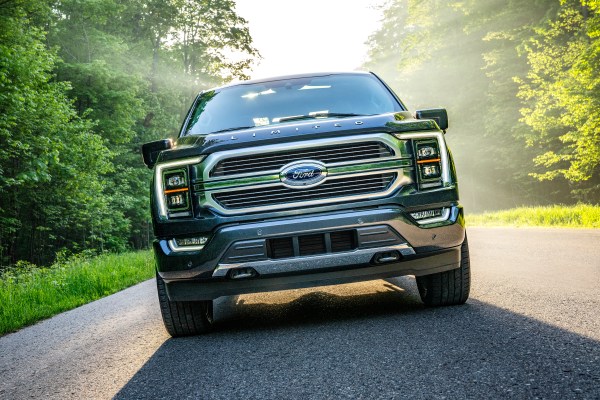

The Internet of Things just got bigger. Four years after Ford Motor Company introduced an integration with Amazon’s suite of smart home devices, the automaker is beefing up its in-vehicle software offerings with built-in Alexa voice assistant and a wireless software update ecosystem.
Ford’s over-the-air software updates, which it has branded Power-Up, will have the capability of updating “virtually all” of the computer modules in new Ford vehicles, not just the ones that focus on infotainment, the company said in a statement Thursday. Ford estimates that Power-Up will be able to update more than 80 computer modules on higher-end models. The automaker aims to manufacture 33 million vehicles equipped with this service and Alexa by 2028.
“We believe that data is the new oil, since it’s essential to our electric future and enables us to have an always-on relationship with our customer,” Alex Purdy, head of Ford’s business operations for enterprise connectivity, said.
That “data is the new oil” line is nothing new. Former Intel CEO Brian Krzanich made that very declaration back in 2016. New or not, data is seen as an increasingly valuable resource to automakers.
Purdy said the new software may reduce the need for repair trips and free up dealers to focus on more profitable services, like hardware repairs and maintenance. Many of the software updates will require little to no action from the driver, and they can schedule those updates that require a system reboot.
Using the built-in Alexa assistant, drivers will be able to use voice control to start or stop their engine, lock or unlock doors, defrost their windows, make a call or play music. Customers who have Alexa smart home devices will be able to connect the two systems so that they can, for example, turn on the lights in their home from their driveways. Ford aims to build Alexa software into 700,000 vehicles across the U.S. and Canada this year, though the company did not discuss rollouts in other countries.
Gone are the days of the customer survey — the new software ecosystem will give Ford data on how vehicle owners use their cars. “We can double down on the features people love, get rid of the ones people don’t,” Purdy said. Ford is giving all drivers complimentary access to Alexa for three years, suggesting that the automaker will likely receive mountains of very valuable information on the behavior of its customers from its use.
Ford and Amazon will work together on new features and commercial services for the next six years. It will be delivered via a Power-Up software update this fall beginning with F-150, Mach-E, Bronco, Edge and Super Duty customers. The company will “work its way through” the remaining models until it’s available in Ford’s entire fleet of new vehicles, though Purdy acknowledged it will take many years to reach that goal.
The Power-Up system will also deliver BlueCruise, Ford’s Level 2 hands-free highway driving technology, though customers must purchase this upgrade. Drivers will be able to activate the technology on prequalified sections of divided highway. In the future Ford said it hopes to add more highway sections, lane-change assist and predictive speed assist that will adjust speed for road curves and other driving situations, similar to Tesla’s Autopilot.
Ford in February also announced a separate six-year partnership with Google to bring Android apps and services to drivers.
The article has been updated to reflect that Power-Up will be capable of updating over 80 computer modules, not 110.

